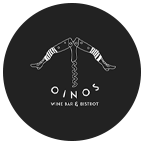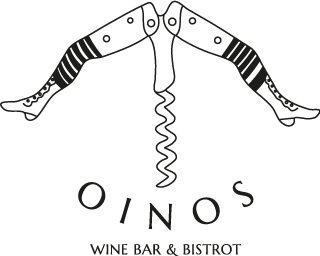As Christmas approaches, city lights begin to glow, cafés fill with the scent of cinnamon, and even the busiest offices seem to adopt a subtle, unexplainable festive softness. Despite calendars being packed toward the end of the year, most workplaces arrive at the same thought: it would be nice to pause for an evening, to be together, to look back, to say thank you. A corporate Christmas dinner creates exactly this moment—an evening when everyone sets aside their task lists and deadlines, and those who keep the company running throughout the year come just a little closer to one another.
A corporate Christmas dinner is a special occasion: part celebration, part reflection, part team-building, and part relaxation. It’s often one of the most anticipated events of the year, a place where people unwind, chat, and finally revolve not around “meetings” but around the “menu.” But what truly makes this evening magical? How can a well-organized dinner strengthen workplace morale in the long run? What does this occasion mean for an employee—and what does it mean for the company?
The celebration that brings people together: why the corporate christmas dinner matters
No matter how professional a workplace may be, it is the people who move it forward—and the year-end dinner is an acknowledgment of that. One of the most important functions of corporate Christmas events is to break the formality of work and show that people are more than their job titles. The marketing specialist is not just a marketer but someone whose eyes sparkle when talking about their favorite dessert. The project manager is not just a project manager but the one who is always the first on the dance floor. The accountant is not merely the “numbers person,” but a surprisingly humorous colleague who can make an entire table laugh with a perfectly timed joke.
Corporate Christmas dinners create situations where people reveal their true selves to one another. In many cases, these evenings are what forge coworkers into a team; good vibes, shared experiences, and the feeling of belonging create a competitive advantage that carries into the everyday routine of the coming year. More and more companies understand that these occasions are long-term investments in employee satisfaction and workplace atmosphere.

The magic of the venue: restaurants, event halls, and the atmosphere they create
One of the first and most important questions about a corporate Christmas dinner is always the location. The choice is not only logistical but deeply atmospheric. A brightly lit, elegant restaurant provides a completely different experience from a vintage-style loft or a cozy tavern with wooden tables.
Larger companies often choose event halls where everything is available—sound systems, projectors, a stage, a dance floor. This allows for award ceremonies, speeches, or even live bands. Smaller businesses tend to lean toward more intimate, personal spaces where the dinner feels more like a large family gathering than an official event.
The venue’s atmosphere defines the evening. A romantic restaurant brings warmth and traditional holiday charm, while a modern, minimalist event space creates a sense of stylish celebration. A corporate dinner always reflects the company’s culture—whether it is relaxed and friendly, or elegant and festive.
The menu – where the celebration truly comes alive
Christmas and gastronomy always walk hand in hand. A well-curated menu can evoke the warmth of childhood holidays, the familiar flavors of family feasts, or introduce new culinary experiences to colleagues. A corporate Christmas dinner becomes unforgettable when the dishes honor tradition while adding a touch of creativity.
Many festive menus include fish, roasted meats, chestnuts, citrus-spice sauces, classic bejgli or modern reinterpretations of traditional poppy seed desserts. Other companies prefer a more international approach—exotic dishes, unique desserts, or themed dinners.

Sharing a meal means much more than eating
Eating together—the “you have to taste this!” moment, the passing of shared platters—creates bonds that often bring the team closer than any formal meeting could. Food is an experience, and festive dishes are even more so.
Speeches, awards, and words of gratitude
For many companies, the year-end dinner is also a celebration of annual achievements. Leaders express gratitude through speeches, highlight key milestones, and often present awards: “Employee of the Year,” “Best Team Player,” “Most Improved,” and other creative recognitions that always bring smiles to the recipients’ faces.
Expressing gratitude in this way is incredibly important
In a company, people often work in a rush, overwhelmed by tasks, with little time to pause and say thank you. The Christmas dinner is about exactly this—acknowledging that someone noticed, appreciates, and openly recognizes that work doesn’t get done by itself.
Sometimes it is enough for a leader to speak sincerely about the future, to thank the team for their efforts, and to share a few personal thoughts. These moments often mean more to employees than any gift could.
Games, activities, and a light-hearted atmosphere
The best corporate Christmas dinners always include a pinch of the unexpected. A fun quiz, a Secret Santa gift exchange, an improvisation game, or a photo corner—all elements that brighten the evening. Programs not only entertain but also help even the more introverted colleagues feel comfortable and included.
At some companies, dinner is followed by dancing. As soon as the music starts, everyone seems to forget that only hours earlier they were hunched over spreadsheets. The relaxed atmosphere feels like a collective exhale after a long and exhausting year.
Frequently asked questions about the corporate christmas dinner
A shared celebration strengthens team spirit, helps close the year, and provides an opportunity for both management and employees to express mutual appreciation. Such an evening contributes to a more positive, cohesive workplace culture.
It mostly depends on the size and style of the company. Large corporations often choose elegant event halls, while smaller businesses prefer intimate, family-like restaurants. The key is that the venue should reflect the corporate’s culture.
A menu becomes memorable when it combines traditional Christmas flavors with something new and exciting. Classic dishes enriched with modern or international elements add to the experience and give colleagues something to talk about.
Very important. These elements give the occasion emotional weight and meaning. Heartfelt expressions of gratitude and the recognition of achievements strongly motivate employees and boost loyalty in the long run.
Because shared laughter, creative tasks, and light-hearted games help people relax and allow even more reserved colleagues to open up. Activities ensure that the dinner becomes a memorable experience rather than just a formal meal.

